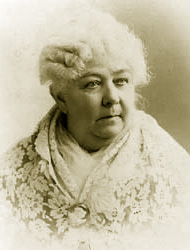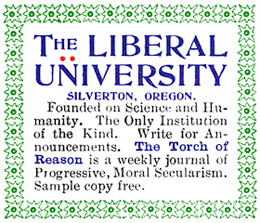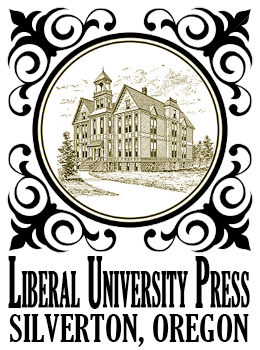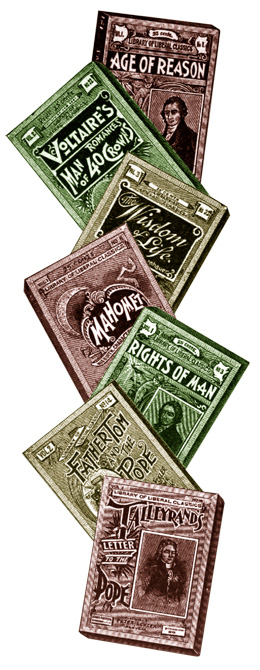By Elizabeth Cady Stanton — June, 1901
 Continued from May: The ladies of the tribe of Ymanan are celebrated for their beauty and musical talent; when they give concerts the men come eagerly from the most distant parts, adorned like male ostriches. The women of the Berber tribes sing every evening to the accompaniment of their violin, and they improvise. The Touaregs are the descendants of the Libyans spoken of by Herodotus.
Continued from May: The ladies of the tribe of Ymanan are celebrated for their beauty and musical talent; when they give concerts the men come eagerly from the most distant parts, adorned like male ostriches. The women of the Berber tribes sing every evening to the accompaniment of their violin, and they improvise. The Touaregs are the descendants of the Libyans spoken of by Herodotus.
This historian tells us that:
“In the valley of the Nile the women go to market and traffic, whilst the men, shut up in houses, weave the linen. The male children are not compelled by law to maintain their parents; this charge is incumbent by law upon the daughters.”
The imposition of such a duty on the daughters sufficed to establish the rule that the wealth of the family should belong to the women, and wherever the woman possesses this economic position she is not under the guardianship of her husband, but is the head of the family.
The Rev. Samuel Gorman, a missionary among the Taguna Pueblo Indians, remarks in an address before the Historical Society of New Mexico that:
“…the right of property belongs to the female part of the family, and descends in that line from mother to daughter. Their land is held in common as the property of the community, but after a person cultivates a lot he has personal claim to it, which he can sell to one of the community. Their women generally have charge of the granary, and they are more provident than their Spanish neighbors about the future. Ordinarily they try to have a year’s provisions on hand. It is only when two years of scarcity succeed each other that Pueblos, as a community, suffer hunger.”
Of the Senecas of North America, the Rev. Arthur Wright wrote in 1873:
“As to their family system, when occupying the old log houses, it is probable that some one clan predominated, the women taking in husbands, however, from other clans. Usually the females ruled the house. The stores were in common; but woe to the luckless husband or lover who was too shiftless to do his share of the providing. No matter how many children, or whatever goods he might have in the house, he might be ordered at any time to pick up his blanket and budge; and after such an order it would not be healthful for him to attempt to disobey.
“The house would be too hot for him; and unless saved by the intercession of some aunt or grandmother, he must retreat to his own clan, or go and start a new matrimonial alliance in some other. The women were the great power among the clan, as everywhere else. They did not hesitate when occasion required, ‘to knock off the horns,’ as it was technically called, from the head of a chief, and send him back to the ranks of the warriors. The original nomination of the chiefs also always rested with the women.”
The account we find given by the Portuguese navigators of the Nairs, a people inhabiting the coast of Malabar in the fifteenth century, is another proof of the superior condition of women under previous family systems. The Nairs were then in a state of actual civilization; they had a marine and well-organized army; their towns were wealthy, and the inhabitants courteous in manners. But the previous notions of the European visitors were strangely upset by what they saw of the social position of the women.
There were large families, we are told, consisting of several hundred members bearing the same name. The real estate belonged in common to all members of the gens; the most complete equality reigned among them. The husband, instead of living with his wife and children, lived with his brothers and sisters in the maternal house; when he left it, he was always accompanied by his favorite sister; at his death his personal property did not go to his children, but was distributed between the children of his sisters. The mother, or in case of her death, her eldest daughter, was the head of the family; her eldest brother, named the foster father, managed the estate. The husband was a guest; he only entered the house on fixed days, and did not sit at table with his wife and children.
“The Nairs,” says Barbosa, “have an extraordinary respect for their mother; it is from her they receive wealth and honors; they honor equally their eldest sister, who is to succeed the mother, and take the management of the family. The children belong to the mother, and she takes their Support on herself.” The Nair family system was maintained among the Malabar peoples till the invasion of Hyder Ali in 1766.
Strabo says of the primitive people of Spain:
“That they suffered a most foolish governance by women; that the women possessed the property; and it passed from mother to daughter; that the latter gave away their brothers in marriage; that the men took a dowry with them into the houses of their wives; that the women performed all the agricultural work, and were as hardy as men.”
The women at a later period were not only the rulers of the home, but they were priestesses; the deities were in a great part goddesses; all there was of learning and tradition was in the hands of the women, and folk custom long recognized their superiority to men. The woman being the source of traditional religion, the care of the gods was essentially hers. About the hearth arose the first conceptions of the altar and sanctuary and the immortality of the soul. She was essentially the wise, and wrote with her staff in the ashes the will of the gods. Her pots and kettles reappear in every witch trial in the middle ages.
The safety of mother and child, in the solitude of the vast primeval forests, was due in no small measure to the superstition that woman was in communion with the gods, who would avenge her wrongs. Her spirit is supposed to linger around the hearth after death, and to-day the solitary student sitting over the fire, or the peasant when his family are out, will tell you they have been alone at the hearth with their mother soul.
As woman forms the religion and tradition of this period, the goddesses, not gods, are the more numerous and most worshiped. The oldest, the wisest, the most mysteriously powerful of the Teutonic deities are females. Jacob Grimm said of the German goddesses years before instigation had brought the mother age to light:
“In the case of the gods, the previous investigation could, reach its goal by considering them separately. It seems advisable, however, to consider the goddesses collectively, as well as individually, because a common idea lies at the basis of them all, and will thus be more clearly marked. They are conceived of peculiarly as divine mother, traveling about and visiting mortals. From them man has learned the business and the arts of housekeeping, agriculture, cattle raising, spinning, weaving, sowing, reaping, as well as watching the hearth. These labors bring peace and rest to the land, and the memory of them lies firmer in pleasing traditions than war and fighting, which, like women, the majority of the goddesses shun.”
Karl Pearson says: “A truer, although unconscious, tribute to the civilizing work of women, can hardly be imagined.” If we add to the arts mentioned by Grimm the art of healing, the elements of religious faith as a tradition and the runic art of writing, we have a slight picture of what woman accomplished in the centuries which intervened between the promiscuous period and the complete establishment of the father age, with such personal independence and superiority, such authority in the national councils, in religious faith, and at the fireside, with the absolute control of her own home, property, and children, how did it come to pass that the mother was at last dethroned and womanhood degraded in every nation on the globe?
The mother’s labors had from an early period been reinforced by those of her sons whose tastes led them to agriculture, and the herding of cattle, to domestic life rather than that of the wandering nomad existence of the wily hunter, but this class was proportionally small. However, in process of time, as the home, with its increasing comforts and attractions, fire, cooked food, and woman’s tender care in old age, sickness, and death, the innocent prattle of children, the mother’s songs and stories, her religious faith and services, all appealed to the better feelings of the wily hunter also and men began to think, when weary of the battle and the chase, that they would like a permanent foothold in some family group, besides the one into which they were born.
As soon as monogamic marriage appeared, with property and descent in the male line, and men found themselves comfortably ensconced in a home of their own, they began little by little to make their aggressions, and in time completely dominated woman, leaving her no remnant of authority anywhere, neither in the home nor at the altar, nor in the councils of the nation.
Having no paternal instinct, no natural love for children, the devices of men to establish the rights of paternity were as varied as ridiculous. It was the custom at one time, when the mothers gave birth to a child, for the acknowledged father to take to his bed to pretend that he had shared in the perils of labor, and thus prove his identity, while the wife waited on him, for the women, accustomed to agricultural work, were so hardened by it that they did not suffer in childbirth.”
On this point Karl Pearson tells us the transition from the mother to the father age was marked by the appearance of women of gigantic stature. The old legends of contests between men and women for supremacy are not such idle fancies as some would have us believe. Very dark shadows indeed do such figures as those of Ildico, Fredegunde, and Brunhilde cast across the pages of history. Such women were only paralleled by the Clytemnestra and Medea of a like phase of Greek development.
Among the Germans, too, the poets represent the contest between men and women for the mastery. One great element of physical and mental vigor is freedom which women have never enjoyed except under the Matriarchate.
The Amazons, the body guard of the King of Dahomey, the astounding powers of endurance exhibited by domestic servants and the peasant girls of Southern Italy and Germany, the fish women at Boulogne, all point to the great strength when once the physique has been developed. The victory of man over woman was not easily accomplished. It took long centuries to fully confirm it, and traces of the mother-age remain throughout the medieval times.
The permanency of sex relations among the agriculturists and the necessity for organization in matters of defense, which must be entrusted mainly to men, were the beginnings of the father-age. For, though women had been compelled to fight for their own protection and were abundantly able to maintain the contest, yet wars for territory, and conquests over other tribes and nations were opposed by all the tenderest sentiments of their nature. Hence they naturally of their own accord would withdraw from the councils of war, and the battlefield, but as angels of mercy to minister to the wounded and dying. Thus man became ruler, tribal organizer, tribal father, before his position of sexual father was recognized.
While the mother still ruled the house, the father ruled the fight, though oft times guided by the woman. Driven from the commanding position of home mother and deprived of her rights to property and children, the last fortunate of the Teutonic woman was her sacerdotal privileges. She remained holy as priestess. She had charge of the tribal sacrifice and the tribal religion. From this last refuge she was driven by the introduction of the Christian religion, with its narrow Pauline doctrines, which made woman mentally and physically the inferior of man, and lawfully in subjection to him.
The spirit of the church in its contempt for woman, as shown in the Scriptures, in Paul’s epistles and the Pentateuch, the hatred of the fathers, manifested in their ecclesiastical canons, and in the doctrines of asceticism, celibacy and witchcraft, destroyed man’s respect for woman and legalized the burning, drowning, and torturing of women by the thousand.
Women and their duties became objects of hatred to the Christian missionaries and of alternate scorn and fear to pious ascetics and monks. The priestess mother became something impure, associated with the devil, and her lore an infernal incantation, her very cooking a brewing of poison; nay, her very existence a source of sin to man. Thus woman, as mother and priestess, became woman as witch.
The witch trials of the middle ages, wherein thousands of women were condemned to the stake, were the very real traces of the contest between man and woman. Christianity putting the religious weapon into man’s hand made his conquest complete. But woman did not yield without prolonged resistance, and a courageous final struggle. Driven from the home, an outlaw and wanderer everywhere ostracized by the state, condemned by the courts, crucified by the church, the supreme power of the mother of the race was conquered only by the angel of death, and the dark ages tolled her funeral knell.
It was the wholesale, violent suppression of the feminine element, in the effort to establish the Patriarchate, that, more than any other one cause, produced the dark ages. Morgan, in his “Ancient Society,” attributes the premature destruction of ethnic life, in the societies of Greece and Rome, to their failure to develop and utilize the mental and moral conservative forces of the female intellect, which were not less essential than those of men, to their progress.
In closing, I would say that every woman must have a new sense of dignity and self-respect feeling that our mothers, during some periods in the long past, have been the ruling power, and that they used that power for the best interests of humanity. As history is said to repeat itself, we have every reason to believe that our turn will come again, it may not be for woman’s supremacy, but for the as yet untried experiment of complete equality, when the united thought of man and woman will inaugurate a just government, a pure religion, a happy home, a civilization at last in which ignorance, poverty and crime will exist no more. Those who watch already behold the dawn of the new day.





